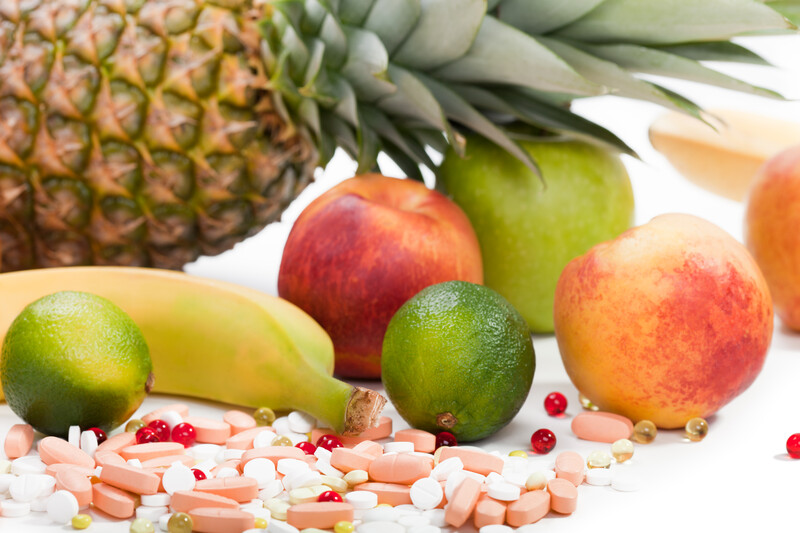Maintaining good eye health is important for everyone. Not only does it keep your eyes functioning at their best, but it can also help prevent a host of vision problems down the road. And luckily, there are a number of vitamins and minerals that are essential for keeping your eyes healthy. Here are the best vitamins and minerals for healthy eyesight.
The Most Effective Eye Vitamins and Minerals
Vitamin A
This is an essential vitamin for eye health because it’s needed to maintain healthy corneas and optic nerves. Vitamin A deficiency has been linked to night blindness, reduced sharpness of vision, and even permanent blindness. Fortunately, there are plenty of foods that provide a good source of vitamins, including spinach, sweet potatoes, carrots, kale, cantaloupe, and most types of squash.
Coenzyme Q10
This is a natural substance that your body produces, but it needs to be replenished in order to function properly. Coenzyme Q10 is important for keeping your eyes healthy by preventing oxidation damage inside the cells. It’s also needed for ATP production, which you need for proper cell function. Coenzyme Q10 is found naturally in a number of foods, including peanuts, turkey, and spinach.
Vitamin C
Also known as ascorbic acid, vitamin C plays an important role in maintaining tissues throughout your body. It’s needed to build collagen, so it’s useful for maintaining healthy eyes, skin, and nails, as well as the linings of your mouth, nose, and throat. Vitamin C also helps to regenerate vitamin E, which is needed for protecting your cells against free radicals. Some good sources of vitamin C include oranges, grapefruits, strawberries, kiwi fruit, and broccoli.
Vitamin E
This vitamin is a powerful antioxidant that protects the fatty parts of your cells from being damaged by free radicals. Free radicals have been linked to cancer, cardiovascular disease, and bone loss. Fortunately, vitamin E can help protect against some of these problems. In addition to protecting against free radicals, it’s also needed for regenerating vitamin A as well as essential fats in the retina. Vitamin E is found naturally in foods like sunflower seeds, almonds, mangos, and papaya.
Lutein
This is a type of antioxidant that protects the cells in your eyes from high-energy particles that could otherwise damage them. There’s some evidence that lutein may also have anti-inflammatory properties, which makes it useful for treating macular degeneration as well as dry eye syndrome. Lutein can be found naturally in foods like spinach, kale, and orange sweet potatoes.
Zinc
This mineral is essential for a number of bodily functions, including maintaining your immune system, wound healing, and healthy cell division. Zinc may also help prevent cataracts from forming, making it useful for protecting your vision. Zinc supplementation has also been linked to an improvement in night vision. A number of foods are high in zinc, including oysters, beef, chicken, and pumpkin seeds.
Missing Eye Vitamins and Minerals
If you’re not getting enough of the essential eye vitamins and minerals from your diet, you may start to notice some signals that something is wrong. Here are a few signals to watch out for if you think you may be missing some of these vital nutrients. Your eyes might start to feel dry or itchy if you aren’t getting enough lubrication. This could be a sign of either vitamin A deficiency of vitamin E deficiency, so try adding some green leafy vegetables to your diet and see if that helps.
If you’re deficient in zinc, cataracts may begin to develop on the lens of your eye. You may also experience a reduction in night vision, which is normally restored by increasing your zinc levels through supplementation or better dietary choices. If you’re deficient in coenzyme Q10, you might notice that it’s harder for you to recover from head injuries and other stressors – this can be another sign of a deficiency. Your eyes may also start to lose their natural “shine” if you’re deficient in coenzyme Q10, so be on the lookout for that as well.
If you’re lacking lutein, then your vision might become slightly blurred over time. If you don’t have enough lutein, then light can’t pass through your eye as easily as it should, and that may cause problems with your vision.
Shopping for Eye Vitamins and Minerals
If you’re trying to add some of these essential vitamins and minerals to your diet, there are a few ways that you can do it. First of all, consider taking a multivitamin supplement on a daily basis. If you aren’t getting enough through your diet, then a multi-vitamin may be among the safest ways to get your daily dose.
You can also look for foods that are high in each of these nutrients if you’re having trouble getting enough from your diet alone. Try swapping out a few of your less healthy grocery items with some more nutrient-dense choices, and eat them on a regular basis. If you aren’t eating enough green leafy vegetables, try adding some spinach to your diet. You can also munch on some kale chips if you want a more savory alternative.
If you’re not getting enough of these nutrients from your diet, then consider taking a daily supplement. There are many eye vitamins and minerals on the market that try to fulfill all or most of your daily requirements in one single pill, making it easy to get your daily dose.
The five essential eye vitamins and minerals – A, C, E, zinc, and lutein – are all important for maintaining healthy eyesight. Make sure you’re getting enough of these nutrients in your diet by including plenty of nutrient-rich foods in your regular meals. If you’re not getting enough from your diet alone, consider taking a daily supplement to make up the difference.
Shirley Mist has been involved in fashion and design for many years. She has also written extensively for many online publications. She currently writes for The Tribune World and is a valued member of our team.
